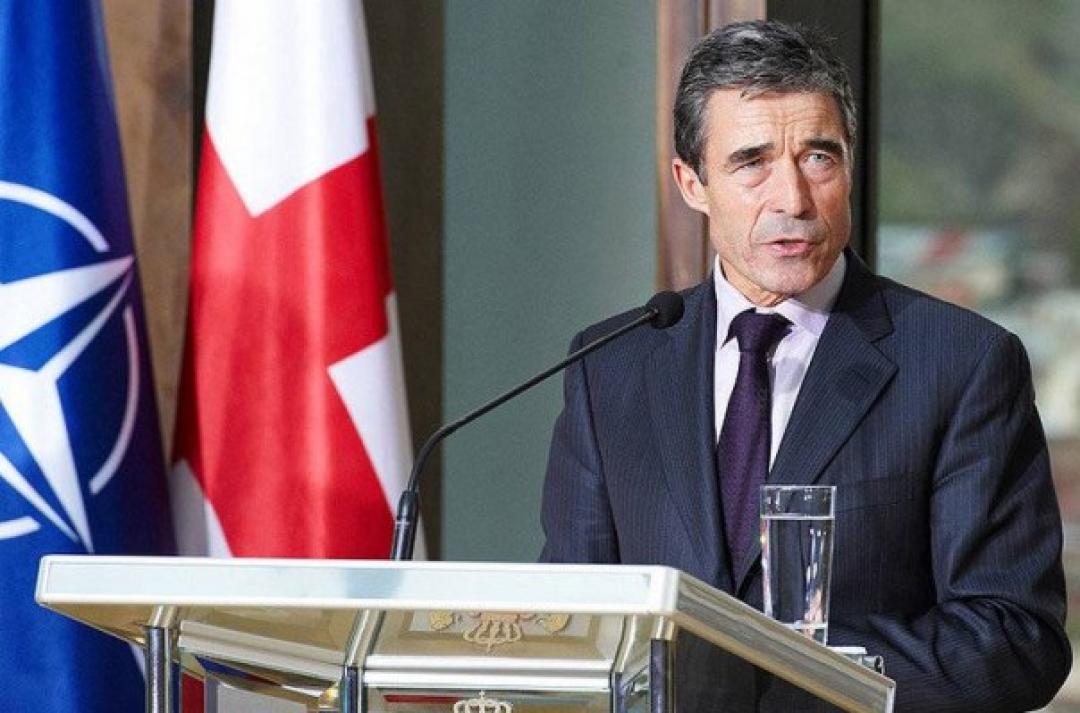
Former NATO Secretary General Visits Armenia

On Monday, Anders Fogh Rasmussen, a former secretary general of NATO and the founding chairman of the international political consulting organization “Rasmussen Global," arrived in Armenia to meet with Armenian PM Nikol Pashinyan and other top officials.
Rasmussen and Pashinyan discussed the existing regional developments and security challenges. Later, Rasmussen visited the entrance of the Lachin corridor and the resort town of Jermuk, which suffered extensive shelling in Azerbaijan’s assault last September.
At a press briefing in Jermuk city, the former NATO official said that he arrived on the invitation of Armenia to help the Armenian government to strengthen ties with the West and the EU.
Referring to the situation in the Lachin corridor, he mentioned that the blockade is inhumane and illegal, which could develop into a humanitarian catastrophe. In this context, Rasmussen added that the most important step would be that the EU put maximum pressure on Azerbaijan in case it fails to comply with the ruling of the International Court of Justice to open the corridor.
“The EU has made an energy agreement with Azerbaijan, and that could be used as a platform for a critical dialogue with the government of Azerbaijan. Maybe President Ilham Aliyev is an autocrat, like President Putin, but I don't think President Aliyev would not like to be in the same situation as President Putin and be considered an international aggressor. That is why, once again, I call on President Aliyev to dissolve the blockade immediately”, Rasmussen outlined.
Regarding protecting people’s rights and security in Nagorno-Karabakh, the former NATO Secretary General said: “We should do our utmost to ensure a lasting and fair peace agreement. A very important element in that peace agreement should be the guarantee of the rights and security of the people in Nagorno-Karabakh. And we will need to have a kind of an international mechanism to monitor, control and guarantee those rights and security for the people of Nagorno-Karabakh.”
In a separate talk with Armenian reporters and policy experts, Anders Fogh Rasmussen touched upon important issues which are at the core of the possible peace treaty between Armenia and Azerbaijan. During his speech, he emphasized the need for a long-term peace agreement that includes a multi-year peacekeeping force. Rasmussen believes that this force should have a strong mandate, ideally provided by the United Nations, and that it will require Russia's consent to be effective. He also stressed the importance of demanding a demilitarized zone close to the border while contending that the ethnic cleansing in Nagorno-Karabakh would be a ‘red line’ for the West.
Regarding the transport routes between mainland Azerbaijan and Nakhichevan via Armenia, Rasmussen highlighted: “I got the impression that the Armenian government is not opposed to free flow through this southern connection under certain conditions. I understand that, furthermore, the Azeris require protection of this connection by Russia. It’s a complicated issue that will have to be solved within a peace agreement.”
See Also


Simonyan: “Armenia Should Trade with Turkey and Azerbaijan Instead of Closing Borders”

Mirzoyan Meets US Deputy Assistant Secretary Joshua Huck

Azerbaijani President Holds Talks with UAE and German Business Delegations on Economic Cooperation

Grigoryan Confirms Armenia’s Readiness to Dissolve OSCE Minsk Group Upon Peace Treaty Signing

